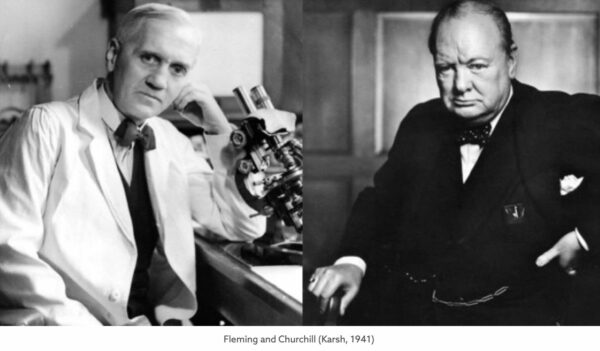As he neared his destination, on his way to make a very important speech in Scotland, an Englishman’s mode of transportation got stuck in the mud. Across the field, a Scottish farm boy noticed the problem, recognized that he needed help, and approached the Englishman.
The boy told him that he would hook his team of horses to the horses pulling the Englishman’s carriage and pull it free. True to his word, the boy did exactly what he said and it worked. Just before the Englishman left, he asked the young man if he could help him in any way and asked, “Is there anything that you plan to do in the future?” The young boy replied, “Oh yes, I plan to go to school and be a doctor.” The curiosity, as well as the generosity of the Englishman, was sparked, and he replied, “Then, son, I will help you.” And he did this by paying for the boy’s education.
Many years later, another great Englishman of Parliament, Winston Churchill, was in Morocco for a wartime speech when he was stricken with pneumonia and about to die. However, a miracle drug called “penicillin” saved Churchill’s life. The drug in its earliest form had been discovered many years before by Sir Alexander Fleming, who was the Scottish farm boy that helped a man out of a mud pit, who in turn helped the boy become a doctor. The man who paid for his education was Randolph Churchill, the father of Winston Churchill.
Think about the ripple effect of each action in this story: Randolph Churchill on his way to make an important speech at the Parliament got stuck in the mud, and found himself in need of help; a Scottish farm boy responded, upon which Randolph, a man of means, enabled a young boy to achieve his dream of becoming a doctor; Dr. Fleming, the Scottish farm boy helps to invent a miracle drug called Penicillin that ended up saving the life of Randolph’s son, Winston Churchill.
That’s how the ripple effect works! The ripple effect is based on the understanding that we are all connected. The connections stretch like an incredibly interwoven and complicated tapestry. The Amazing Law of Influence, a belief that guides my worldview, states it this way: “One life touches another and both lives are changed; one life touches another and potentially the entire world is changed.”
Our actions have the potential to impact all of creation. Does that mean then, that we really can live a life where our actions contribute to a world where Love Wins? I believe so!
Rev. Linda Harker, Online Campus Pastor



